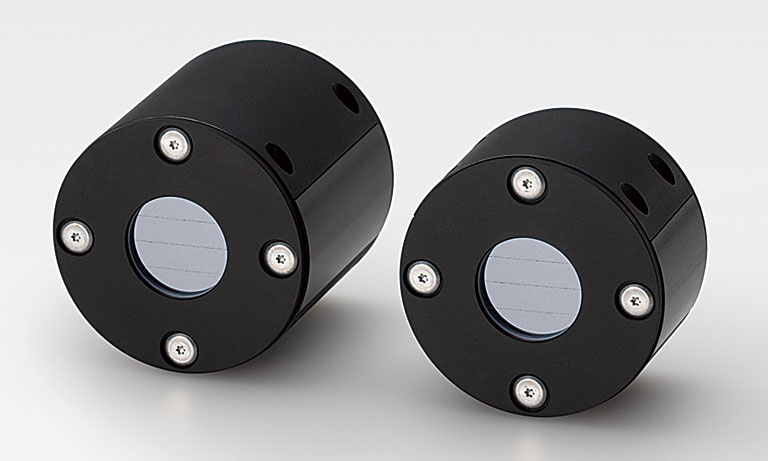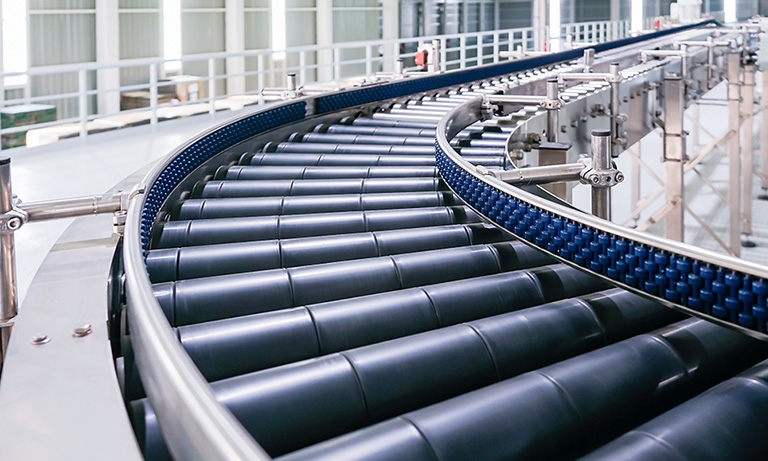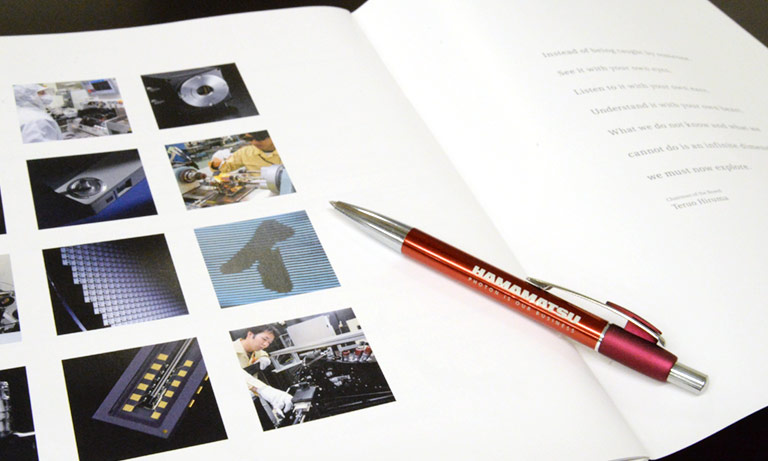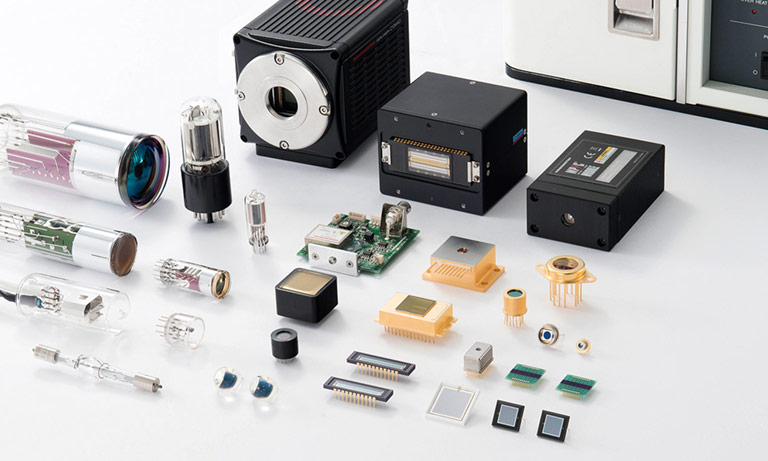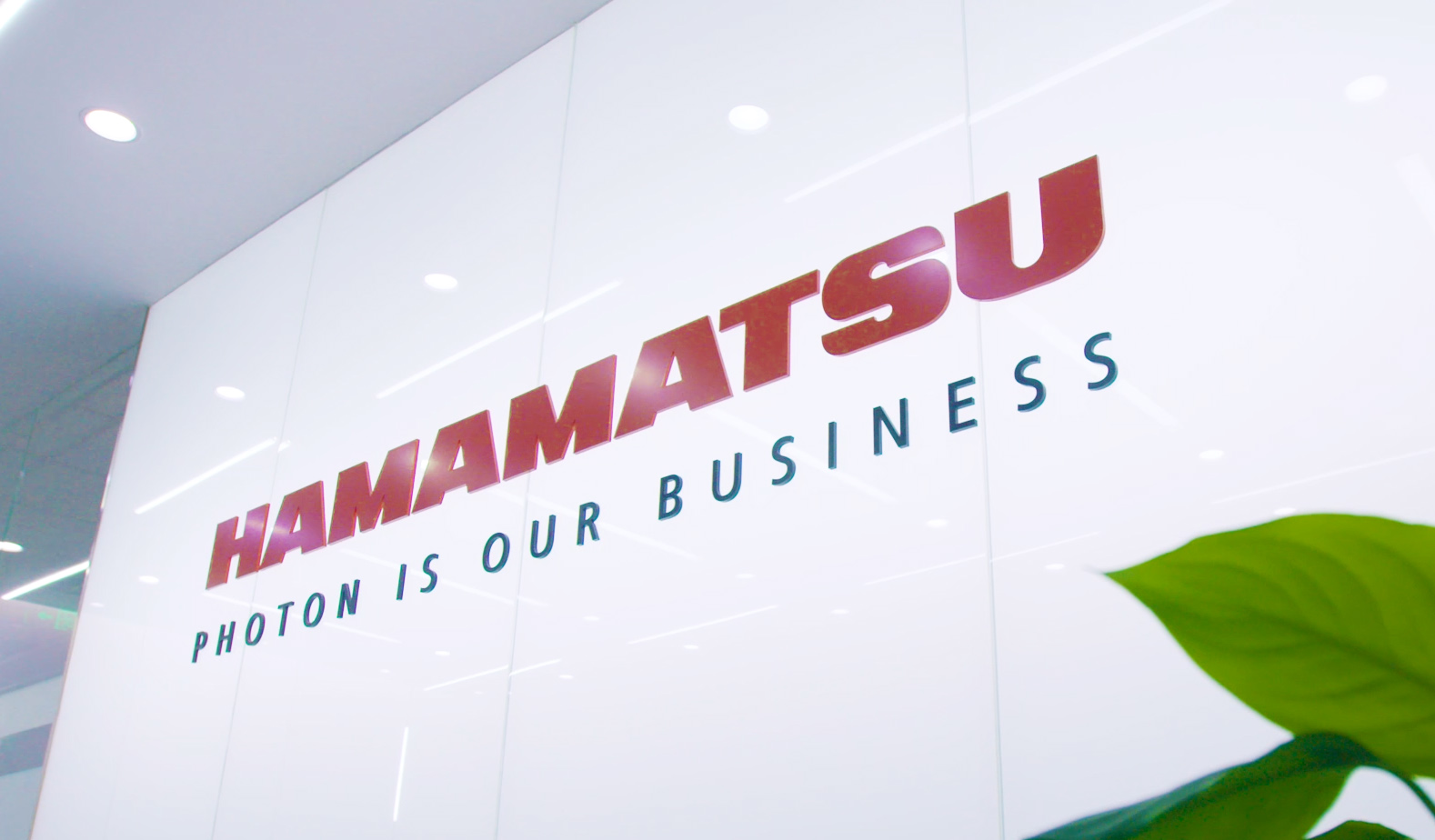Select your region or country.
使用ORCA®-Quest相机进行细胞单分子荧光观测
2025年8月19日发布
Tokai National Higher Education and Research System下属Gifu University的Institute for Glyco-core Research (iGCORE) 之中的Cell Biophysics Laboratory,正在致力于解析细胞内及细胞膜表面分子的作用机制。2022年,该实验室引进ORCA-Quest相机用于单分子荧光观测。
我们采访了该实验室的Kenichi Suzuki教授和Koichiro Hirosawa研究员,以及曾任实验室成员(至2023年5月)、现任National Cancer Center Research Institute下属Division of Advanced Bioimaging主任的Rinshi Kasai,了解他们引进ORCA-Quest的动机、使用体验及未来研究方向展望。
当前研究
Tokai National Higher Education and Research System下属Gifu University的Institute for Glyco-core Research (iGCORE) 之中的Cell Biophysics Laboratory致力于通过观察蛋白质、脂质及其他细胞组分的单个分子,获取事件时间与频率的统计数据,解析分子的作用机制。
通过显微技术观测分子行为对于解析其作用机制至关重要。我们使用超灵敏相机采集分子图像,根据实验要求在高速和高分辨率设置之间进行调整,以深入了解分子动力学信息及其相互作用。此外,我们还正在开发性能优异的光学系统和成像技术,用于改善此类观测。


Rinshi Kasai博士(左)、Kenichi Suzuki教授(中)、Koichiro Hirosawa博士(右)
单分子荧光观测中遇到的问题
单分子荧光观测的最大问题是分子发出的信号非常弱。此外,还有几种因素也增加了这一过程的复杂性,例如需要通过高速成像捕捉分子行为,但这样会削弱每帧的入射信号。在传统的落射照明观测中,背景噪声还会掩盖微弱信号,进一步增加信号检测的复杂性。为了减少背景干扰,经常使用全内反射荧光 (TIRF) 显微镜进行单分子荧光研究。然而,降低相机的读出噪声也很重要,因为相机最终会将该读出噪声信号作为数据加以输出。
解决这一问题的常用方法是使用EM-CCD相机,通过增加放大率检测弱信号,或通过结合使用I.I.(图像增强器)与sCMOS(科学CMOS)相机进行成像。然而,EM-CCD相机和II相机均有在信号倍增过程中产生信号波动,导致信号的定量性和分辨率较低的缺点。我们实验室最近一直在进行单分子超分辨率成像。由于信号波动引起的分辨率降低会导致超分辨率图像质量下降,我们需要一台无需依赖I.I.或其他方法即可检测信号的相机。


引入ORCA-Quest相机的决定性因素

我们决定部署ORCA-Quest相机的原因在于,噪音的降低带来了图像质量的显著改善,这一点在查看演示图像时能够立即发现。
虽然我们已经从规格表中得知噪声水平降低了,但在观察实际输出图像并直接感知性能的显著改善时,更能感受到相机技术的重大进步。
我们的实验室在引入ORCA-Quest之前,还使用过ORCA-Flash4.0、ORCA-Fusion和其他相机。这些相机虽然具有高灵敏度,但在我们需要的帧速率下,单个分子的信号太弱,无法仅靠相机生成令人满意的图像。因此,我们不得不将此类sCMOS相机与I.I.方法结合使用,才能采集合适的图像。然而,如果使用ORCA-Quest,我们仅凭该相机即可获得令人满意的单分子荧光图像。这一优势促使我们采用ORCA-Quest,我们预计它将提高单分子跟踪和超分辨率成像的质量。
目前,我们既会单独使用ORCA-Quest,也会使用I.I.+之前的sCMOS相机的设置,具体将根据实验要求加以选择。对于需要非常高速度的成像,I.I.+sCMOS 相机组合可能提供更高的灵敏度,但在大多数情况下,使用ORCA-Quest即可获得令人满意的图像。
成像示例
在中国仓鼠卵巢来源的CHO细胞中表达以荧光蛋白mStayGold标记的趋化因子受体CXCR4,并利用ORCA-Quest相机进行单分子荧光观测。
扫描模式:标准扫描
帧速率:40帧/秒(1024 × 1024)
扫描方式:超静音扫描
帧速率:40帧/秒(512 × 512)
数据提供:Rinshi Kasai博士。所属机构:National Cancer Center Research Institute下属Division of Advanced Bioimaging
未来研究展望
对于未来的研究展望,我们希望主要采用以下两种成像技术开展我们的研究。
1. 多波长成像
2. 三维超分辨率观测
对于多波长成像,我们目前使用两个波长来观测单分子荧光。然而,我们希望将这种能力扩展到三个甚至四个波长。例如,如果可以同时进行三波长成像,我们就能够在前两个波长观测分子行为,并在第三个波长采集超分辨率图像。这一进步将使我们能够在比现有系统更复杂的系统中分析分子相互作用和行为。
在三维超分辨率观测方面,我们主要关注监测细胞膜表面的分子行为。然而,通过同时对膜内部进行三维超分辨率成像,我们可以观测到分子与内质网及其内部的高尔基体的相互作用。这种方法有可能解析内质网和高尔基体如何参与膜表面发生的现象,并阐明膜表面发生的事件的信息是如何传递到膜内部的。
采集三维超分辨图像的方法有多种,但我们实验室采用的是使用圆柱形透镜的方法。为了利用该方法采集三维超分辨率图像,需要根据分子在二维图像中的形状反向计算分子的Z轴位置信息。虽然使用I.I.方法可以提高灵敏度,但会降低分辨率,导致分子形状模糊,从而降低超分辨率成像的图像质量。ORCA-Quest通过消除对于I.I.方法的需求解决了这个问题,从而保持了图像的清晰度和分辨率。
我们相信ORCA-Quest相机将显著推动我们的研究进展。

National Cancer Center Research Institute下属Division of Advanced Bioimaging
2023年6月,National Cancer Center Research Institute设立了Division of Advanced Bioimaging,由Kenichi Suzuki教授担任总干事,Rinshi Kasai博士担任实验室主任。
该实验室将采用与Institute for Glyco-core Research (iGCORE) 的Cell Biophysics Laboratory相同的显微镜系统,主要通过单分子荧光观测来解析癌细胞中的信号调节和信号转导机制。

Researcher profiles

Prof. Kenichi G. N. Suzuki
Cell Biophysics Laboratory of the Institute for Glyco-core Research (iGCORE), Tokai National Higher Education and Research System, Gifu University: Professor.
Division of Advanced Bioimaging, National Cancer Center Research Institute: Chief.
Jan. 1997
Department of Synthetic and Biological Chemistry, Graduate School of Engineering, Kyoto University, Ph. D.
Nov. 1996
Research Associate in Michael P. Sheetz Laboratory, Duke University Medical Center, Department of Cell Biology
Feb. 1999
Researcher in ERATO Kusumi Membrane Organizer Project
Apr. 2005
Research Assistant Professor, Kyoto University, Institute for Frontier Medical Sciences
Oct. 2008
PRESTO Researcher, Japan Science and Technology Agency (JST)
Apr. 2011
Associate Professor, Kyoto University, Institute for Integrated Cell-Material Sciences (iCeMS); Visiting Associate Professor, The National Centre for Biological Sciences (NCBS) / Institute for Stem Cell Biology and Regenerative Medicine (inStem)
Apr. 2017
Professor, Center for Highly Advanced Integration of Nano and Life Sciences (G-CHAIN), Gifu University
Jan. 2021
Professor, Cell Biophysics Laboratory of the Institute for Glyco-core Research (iGCORE), Tokai National Higher Education and Research System, Gifu University
Apr. 2023
Chief, Division of Advanced Bioimaging, National Cancer Center Research Institute (Concurrent)

Dr. Rinshi Kasai
Division of Advanced Bioimaging, National Cancer Center Research Institute: Laboratory Head. Hoshi University: Visiting Senior Lecturer.
Mar. 2005
Department of Biological Science, School of Science, Nagoya University, Ph. D.
Apr. 2005
Researcher, International Cooperative Research Project (ICORP), Japan Science and Technology Agency
Apr. 2010
Researcher, Institute for Integrated Cell-Material Sciences (iCeMS), Kyoto University
Apr. 2011
Assistant Professor, Institute for Frontier Medical Sciences, Kyoto University
Oct. 2016
Assistant Professor, Institute for Frontier Life and Medical Sciences, Kyoto University
Apr. 2021
Program-Specific Associate Professor, Cell Biophysics Laboratory of the Institute for Glyco-core Research (iGCORE), Tokai National Higher Education and Research System, Gifu University
Jun. 2023
Laboratory Head, Division of Advanced Bioimaging, National Cancer Center Research Institute
Apr. 2024
Visiting Senior Lecturer, Hoshi University

Dr. Koichiro Hirosawa
Cell Biophysics Laboratory of the Institute for Glyco-core Research (iGCORE), Tokai National Higher Education and Research System, Gifu University: Researcher
Mar. 2010
Department of Micro Engineering, Kyoto University, Ph.D.
Apr. 2010
Researcher, Institute for Integrated Cell-Material Sciences (iCeMS), Kyoto University
Apr. 2017
Researcher, Center for Highly Advanced Integration of Nano and Life Sciences (G-CHAIN), Gifu University
Jan. 2021
Researcher, Cell Biophysics Laboratory of the Institute for Glyco-core Research (iGCORE), Tokai National Higher Education and Research System, Gifu University
* 本页显示的内容基于2023年9月进行的采访。
相关产品
ORCA-Quest 2是一款新的qCMOS相机,也是ORCA-Quest的后续产品,具有多项深化进步,例如在极低噪声扫描模式下读出速度更快,紫外区域灵敏度更高。
其他案例研究
- Confirmation
-
It looks like you're in the . If this is not your location, please select the correct region or country below.
You're headed to Hamamatsu Photonics website for (Chinese). If you want to view an other country's site, the optimized information will be provided by selecting options below.
In order to use this website comfortably, we use cookies. For cookie details please see our cookie policy.
- Cookie Policy
-
This website or its third-party tools use cookies, which are necessary to its functioning and required to achieve the purposes illustrated in this cookie policy. By closing the cookie warning banner, scrolling the page, clicking a link or continuing to browse otherwise, you agree to the use of cookies.
Hamamatsu uses cookies in order to enhance your experience on our website and ensure that our website functions.
You can visit this page at any time to learn more about cookies, get the most up to date information on how we use cookies and manage your cookie settings. We will not use cookies for any purpose other than the ones stated, but please note that we reserve the right to update our cookies.
1. What are cookies?
For modern websites to work according to visitor’s expectations, they need to collect certain basic information about visitors. To do this, a site will create small text files which are placed on visitor’s devices (computer or mobile) - these files are known as cookies when you access a website. Cookies are used in order to make websites function and work efficiently. Cookies are uniquely assigned to each visitor and can only be read by a web server in the domain that issued the cookie to the visitor. Cookies cannot be used to run programs or deliver viruses to a visitor’s device.
Cookies do various jobs which make the visitor’s experience of the internet much smoother and more interactive. For instance, cookies are used to remember the visitor’s preferences on sites they visit often, to remember language preference and to help navigate between pages more efficiently. Much, though not all, of the data collected is anonymous, though some of it is designed to detect browsing patterns and approximate geographical location to improve the visitor experience.
Certain type of cookies may require the data subject’s consent before storing them on the computer.
2. What are the different types of cookies?
This website uses two types of cookies:
- First party cookies. For our website, the first party cookies are controlled and maintained by Hamamatsu. No other parties have access to these cookies.
- Third party cookies. These cookies are implemented by organizations outside Hamamatsu. We do not have access to the data in these cookies, but we use these cookies to improve the overall website experience.
3. How do we use cookies?
This website uses cookies for following purposes:
- Certain cookies are necessary for our website to function. These are strictly necessary cookies and are required to enable website access, support navigation or provide relevant content. These cookies direct you to the correct region or country, and support security and ecommerce. Strictly necessary cookies also enforce your privacy preferences. Without these strictly necessary cookies, much of our website will not function.
- Analytics cookies are used to track website usage. This data enables us to improve our website usability, performance and website administration. In our analytics cookies, we do not store any personal identifying information.
- Functionality cookies. These are used to recognize you when you return to our website. This enables us to personalize our content for you, greet you by name and remember your preferences (for example, your choice of language or region).
- These cookies record your visit to our website, the pages you have visited and the links you have followed. We will use this information to make our website and the advertising displayed on it more relevant to your interests. We may also share this information with third parties for this purpose.
Cookies help us help you. Through the use of cookies, we learn what is important to our visitors and we develop and enhance website content and functionality to support your experience. Much of our website can be accessed if cookies are disabled, however certain website functions may not work. And, we believe your current and future visits will be enhanced if cookies are enabled.
4. Which cookies do we use?
There are two ways to manage cookie preferences.
- You can set your cookie preferences on your device or in your browser.
- You can set your cookie preferences at the website level.
If you don’t want to receive cookies, you can modify your browser so that it notifies you when cookies are sent to it or you can refuse cookies altogether. You can also delete cookies that have already been set.
If you wish to restrict or block web browser cookies which are set on your device then you can do this through your browser settings; the Help function within your browser should tell you how. Alternatively, you may wish to visit www.aboutcookies.org, which contains comprehensive information on how to do this on a wide variety of desktop browsers.
5. What are Internet tags and how do we use them with cookies?
Occasionally, we may use internet tags (also known as action tags, single-pixel GIFs, clear GIFs, invisible GIFs and 1-by-1 GIFs) at this site and may deploy these tags/cookies through a third-party advertising partner or a web analytical service partner which may be located and store the respective information (including your IP-address) in a foreign country. These tags/cookies are placed on both online advertisements that bring users to this site and on different pages of this site. We use this technology to measure the visitors' responses to our sites and the effectiveness of our advertising campaigns (including how many times a page is opened and which information is consulted) as well as to evaluate your use of this website. The third-party partner or the web analytical service partner may be able to collect data about visitors to our and other sites because of these internet tags/cookies, may compose reports regarding the website’s activity for us and may provide further services which are related to the use of the website and the internet. They may provide such information to other parties if there is a legal requirement that they do so, or if they hire the other parties to process information on their behalf.
If you would like more information about web tags and cookies associated with on-line advertising or to opt-out of third-party collection of this information, please visit the Network Advertising Initiative website http://www.networkadvertising.org.
6. Analytics and Advertisement Cookies
We use third-party cookies (such as Google Analytics) to track visitors on our website, to get reports about how visitors use the website and to inform, optimize and serve ads based on someone's past visits to our website.
You may opt-out of Google Analytics cookies by the websites provided by Google:
https://tools.google.com/dlpage/gaoptout?hl=en
As provided in this Privacy Policy (Article 5), you can learn more about opt-out cookies by the website provided by Network Advertising Initiative:
http://www.networkadvertising.org
We inform you that in such case you will not be able to wholly use all functions of our website.
Close






















